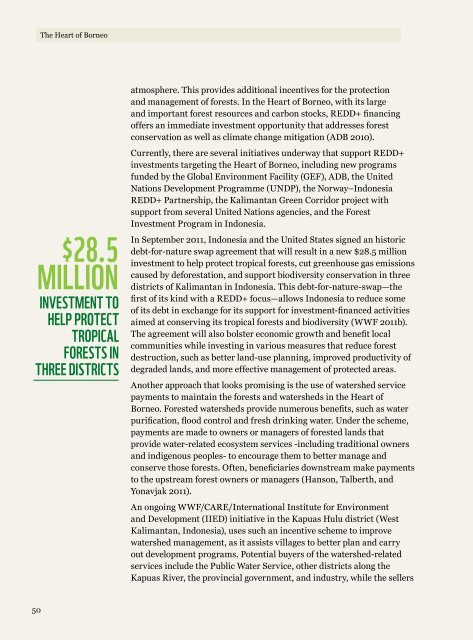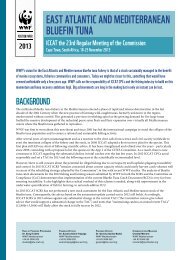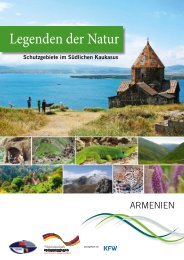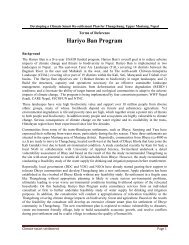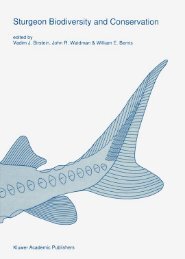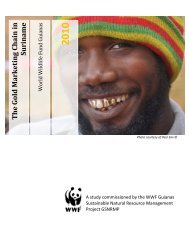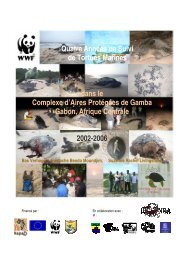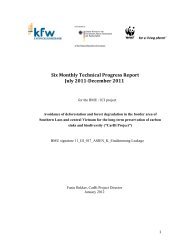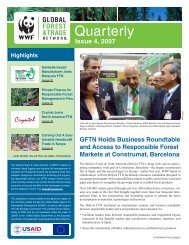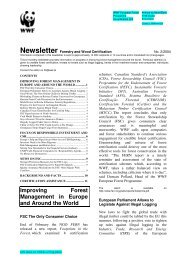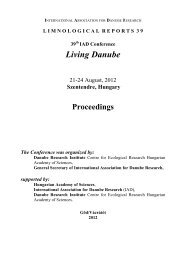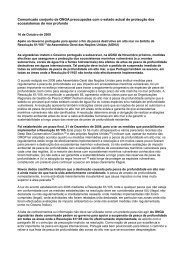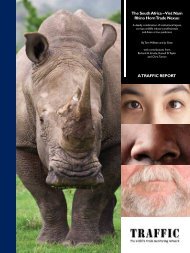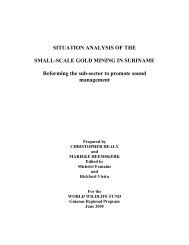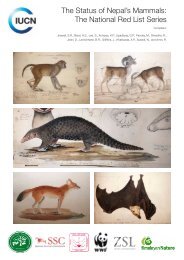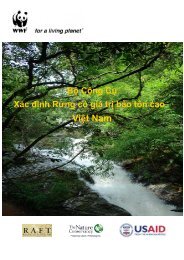Download the pdf - Global Footprint Network
Download the pdf - Global Footprint Network
Download the pdf - Global Footprint Network
Create successful ePaper yourself
Turn your PDF publications into a flip-book with our unique Google optimized e-Paper software.
50<br />
The Heart of Borneo<br />
$28.5<br />
MILLIon<br />
InvestMent to<br />
heLP PRoteCt<br />
tRoPICAL<br />
FoRests In<br />
thRee DIstRICts<br />
atmosphere. This provides additional incentives for <strong>the</strong> protection<br />
and management of forests. In <strong>the</strong> Heart of Borneo, with its large<br />
and important forest resources and carbon stocks, REDD+ financing<br />
offers an immediate investment opportunity that addresses forest<br />
conservation as well as climate change mitigation (ADB 2010).<br />
Currently, <strong>the</strong>re are several initiatives underway that support REDD+<br />
investments targeting <strong>the</strong> Heart of Borneo, including new programs<br />
funded by <strong>the</strong> <strong>Global</strong> Environment Facility (GEF), ADB, <strong>the</strong> United<br />
Nations Development Programme (UNDP), <strong>the</strong> Norway–Indonesia<br />
REDD+ Partnership, <strong>the</strong> Kalimantan Green Corridor project with<br />
support from several United Nations agencies, and <strong>the</strong> Forest<br />
Investment Program in Indonesia.<br />
In September 2011, Indonesia and <strong>the</strong> United States signed an historic<br />
debt-for-nature swap agreement that will result in a new $28.5 million<br />
investment to help protect tropical forests, cut greenhouse gas emissions<br />
caused by deforestation, and support biodiversity conservation in three<br />
districts of Kalimantan in Indonesia. This debt-for-nature-swap—<strong>the</strong><br />
first of its kind with a REDD+ focus—allows Indonesia to reduce some<br />
of its debt in exchange for its support for investment-financed activities<br />
aimed at conserving its tropical forests and biodiversity (WWF 2011b).<br />
The agreement will also bolster economic growth and benefit local<br />
communities while investing in various measures that reduce forest<br />
destruction, such as better land-use planning, improved productivity of<br />
degraded lands, and more effective management of protected areas.<br />
Ano<strong>the</strong>r approach that looks promising is <strong>the</strong> use of watershed service<br />
payments to maintain <strong>the</strong> forests and watersheds in <strong>the</strong> Heart of<br />
Borneo. Forested watersheds provide numerous benefits, such as water<br />
purification, flood control and fresh drinking water. Under <strong>the</strong> scheme,<br />
payments are made to owners or managers of forested lands that<br />
provide water-related ecosystem services -including traditional owners<br />
and indigenous peoples- to encourage <strong>the</strong>m to better manage and<br />
conserve those forests. Often, beneficiaries downstream make payments<br />
to <strong>the</strong> upstream forest owners or managers (Hanson, Talberth, and<br />
Yonavjak 2011).<br />
An ongoing WWF/CARE/International Institute for Environment<br />
and Development (IIED) initiative in <strong>the</strong> Kapuas Hulu district (West<br />
Kalimantan, Indonesia), uses such an incentive scheme to improve<br />
watershed management, as it assists villages to better plan and carry<br />
out development programs. Potential buyers of <strong>the</strong> watershed-related<br />
services include <strong>the</strong> Public Water Service, o<strong>the</strong>r districts along <strong>the</strong><br />
Kapuas River, <strong>the</strong> provincial government, and industry, while <strong>the</strong> sellers


